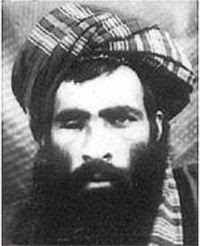India And The Taliban: Should New Delhi Reach Out To Mullah Omar? – Analysis
By IPCS
By Aryaman Bhatnagar
India continues to uphold its position of not talking to the Taliban inspite of both Afghanistan and the US reversing their position and attempting to engage with the militants. Should India also now try to reach out to Mullah Omar? Is it likely that he would reciprocate? What could be the implications of such a policy reversal?
Talking to the Taliban
The change in the international opinion about talking to the Taliban – the Mullah Omar-led Quetta Shura – is borne out of the realization that a military victory over them may not be possible. However, to prevent a negation of the achievements of the past decade, it is considered crucial to reach an agreement with the Taliban.

This rationale is applicable to India as well, which seeks to increase and preserve its soft power arc in Afghanistan, use it as a springboard for expanding into Central Asia and undermine the influence of Pakistan in the region. In order to achieve these aims, it is important for India to maintain good – or at least moderate relations – with the key political elements in Afghanistan. Given the important, if not dominant role, the Taliban is likely to play in the country post-2014, maintaining a blanket ban on talking to them may not serve India’s interests. Opposing or snubbing the Taliban carries the danger of being marginalized in Afghanistan, as was the case in the 1990s due to India’s support of the Northern Alliance. Due to the complete absence of any diplomatic engagement with the Taliban regime, this was one of the worst periods in recent history as far as Indian influence in Afghanistan was concerned. Reaching a settlement with the Taliban may also guarantee some protection to the Indian investments in Afghanistan in the short-term.
Will Mullah Omar talk?
Significant to note here is that, it is the same group that has agreed to open a political office in Qatar to talk peace with the Americans. Although, these talks may have been suspended for the time being, the decision to engage with the US by Mullah Omar highlights the existence of realism in his political calculations. A settlement with the Americans may guarantee some respite from their military operations as well as long-term political concessions such as legitimacy and recognition. Such pragmatism may also shape his approach to any overture made by India.
Cultivating relations with India may serve Mullah Omar’s objective of breaking away from the dependence on their Pakistani ‘patrons’. The links of the Quetta Shura with Pakistan are tenuous at best. Even when the Taliban was in power it maintained a high degree of independence from Pakistan and constantly resisted and resented Islamabad’s attempts to control them. Although, it is reliant on Pakistan’s hospitality for now, the Taliban would almost certainly want to break away from this dependence and have more avenues for external engagement. International isolation and reliance only on Pakistan is a mistake that they would not be keen to repeat. In this respect, India may be an option, especially, given the present popularity of India and ever present distrust of Pakistan. At the same time, the Taliban could leverage its ties with India into a better negotiating position vis-à-vis Pakistan.
The Possible Implications
Reaching out to the Quetta Shura also carries high risks for India. First, it can endanger the goodwill that India has won in Afghanistan since 2001, especially among the non-Pashtuns. India also stands to lose the support of its allies– the Northern Alliance – who would fear abandonment in the face of this policy reversal. Moreover, reports have emerged that Mullah Omar may not be in full control of his foot soldiers and the hawkish elements, who highly resent the peace process. Thus, one cannot rule out the possibility of a more fundamentalist leadership emerging within the Quetta Shura making it tougher to negotiate a political settlement. Thus, the possible failure of reaching out to the Quetta Shura would make things worse as India would not only lose out on its existing constituency but also fail to gain any new friends in the process.
Second, there is no guarantee that the Quetta Shura will be the group that will emerge victorious in Afghanistan. In a scenario, where a different faction – like the Haqqani network – emerges victorious, India once again stands the risk of being marginalized having placed all its bets on the wrong horse, especially on account of the close relations between the Haqqani network and Pakistan.
Finally, attempts to reach out to the Taliban without the blessing of Pakistan carry the risk of antagonizing Islamabad. In the past, Pakistan has arrested or assassinated militants, who have attempted to hold unilateral talks with the Karzai or the Americans and it is possible that Islamabad will once again act as a spoiler to the process, especially given their paranoia about India’s increasing clout in Afghanistan. It is also possible that Pakistan would increase its support to the Haqqani network – responsible for most of the attacks carried out against Indian targets in Afghanistan – to counterbalance the prospects of an alliance between New Delhi and Mullah Omar.
While, the changing ground reality does dictate that India should rethink its approach to Mullah Omar, it would be unwise to do so without taking the larger implications into consideration.
Aryaman Bhatnagar
Research Officer, IPCS
email: [email protected]

Talibans were angry with Indians on Kashmir issue, what india is going to do about it ?